
Behold: Rome (Deluxe Edition)
Requirements
Description
Come. See. Conquer.
-
Hold Rome's Fate in Your Hands!
Behold: Rome is a solo civilization-building card game played without a table. Store and spend resources to develop your civ and build your engine. Conquer wealthy regions, or abandon them to level up your nation. Outsmart and outscore your chosen rival civ to solidify your place in history!
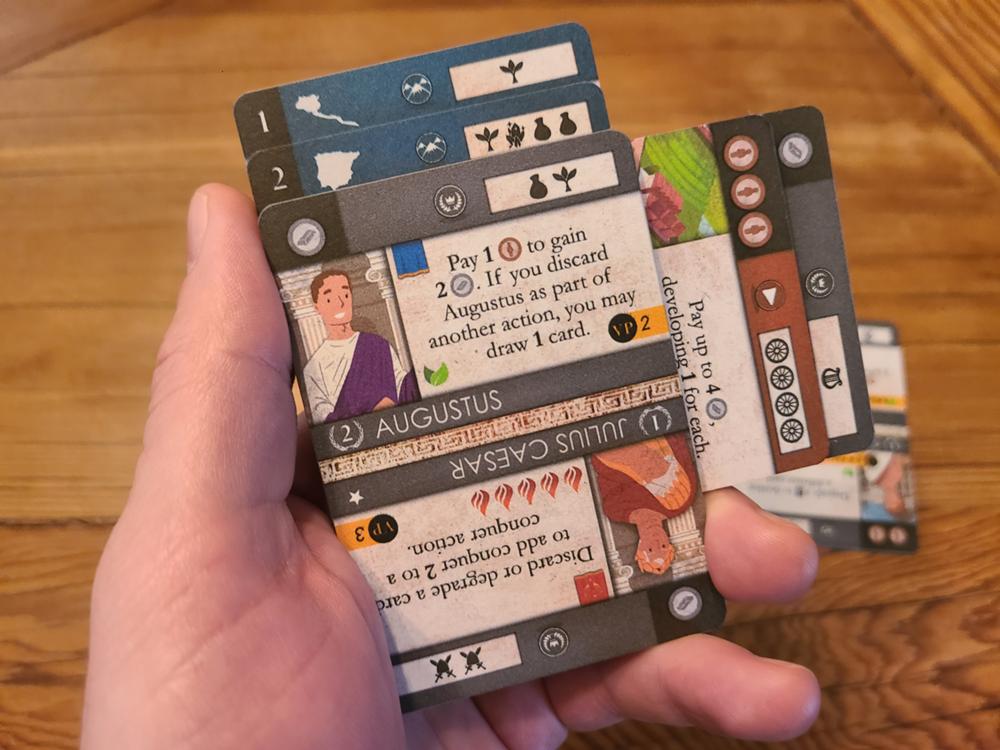
This is the Deluxe Edition (What's the Difference?)
Behold: Rome is offered in two versions: Standard and Deluxe. This is the Deluxe edition, but I'll tell you about both so you can see the differences.
The Standard edition has the minimum amount of components you need to play the game. It is offered as an economic option for those preferring a lower price point. The Standard edition includes a hook box and 18 cards (16 civ cards, 1 nation card, and 1 round tracking card). Rival civ information is on the inside of the hook box. You get a link to a digital rulebook rather than a physical rulebook. You will not be able to save your game with the Standard edition. You will also need to remember which age you're in (a.k.a., which third of the game you're in) because you do not get the age-tracking card.
The Deluxe version lives in a tuck box and comes with extra cards that allow you to save your game between sessions. It also comes with the age-tracking card that helps you remember which third of the game you're in. You also get a card with rival civ information, and you get the physical rulebooks inside the box.
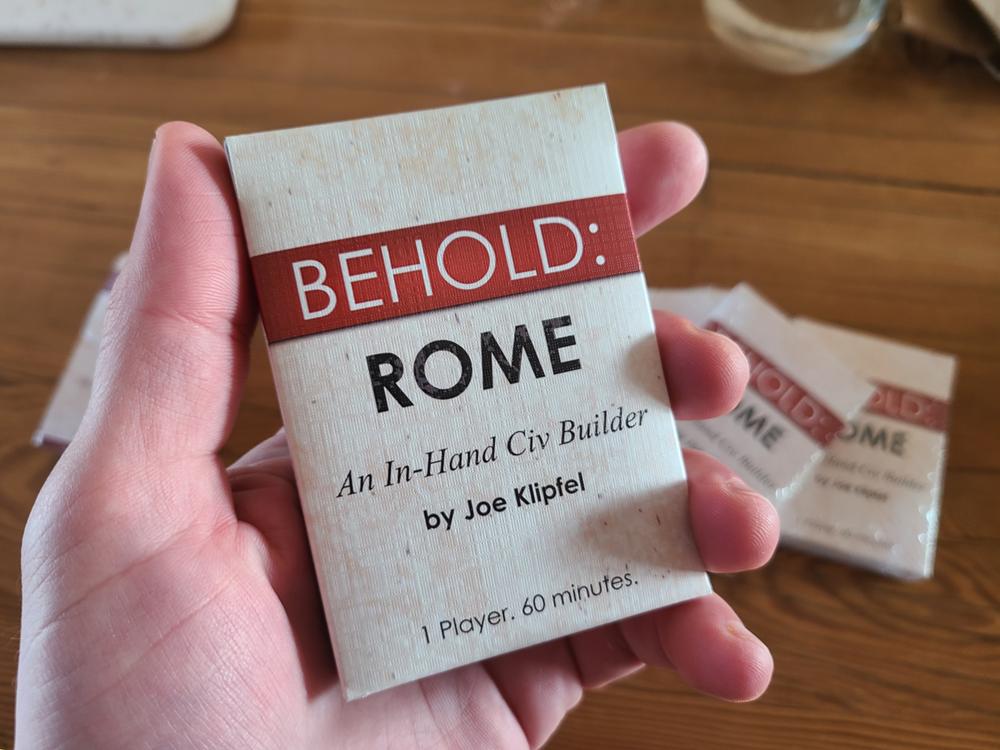
How's It Play?
In Behold: Rome, you are trying to outscore your chosen rival civ. Cards have 4 orientations, called levels. Every card level is unique and has its own (often conditional) scoring rule. Your goal is to orient your deck for maximal scoring, upgrade your nation card, and conquer the wealthiest regions by the end of round 12!
Every turn, you will play cards to take actions. You will store and spend two different resource types: materials (typically spent to upgrade cards) and population (typically spent to conquer regions). Conquer actions let you take control of regions, which boost your production engine. You may need to abandon regions, however, to develop your nation or gain valuable tributaries.
Your nation card has 4 levels, each with a powerful and unique scoring ability. You start as a monarchy, but can progress to a republic, empire, and even a theocracy!
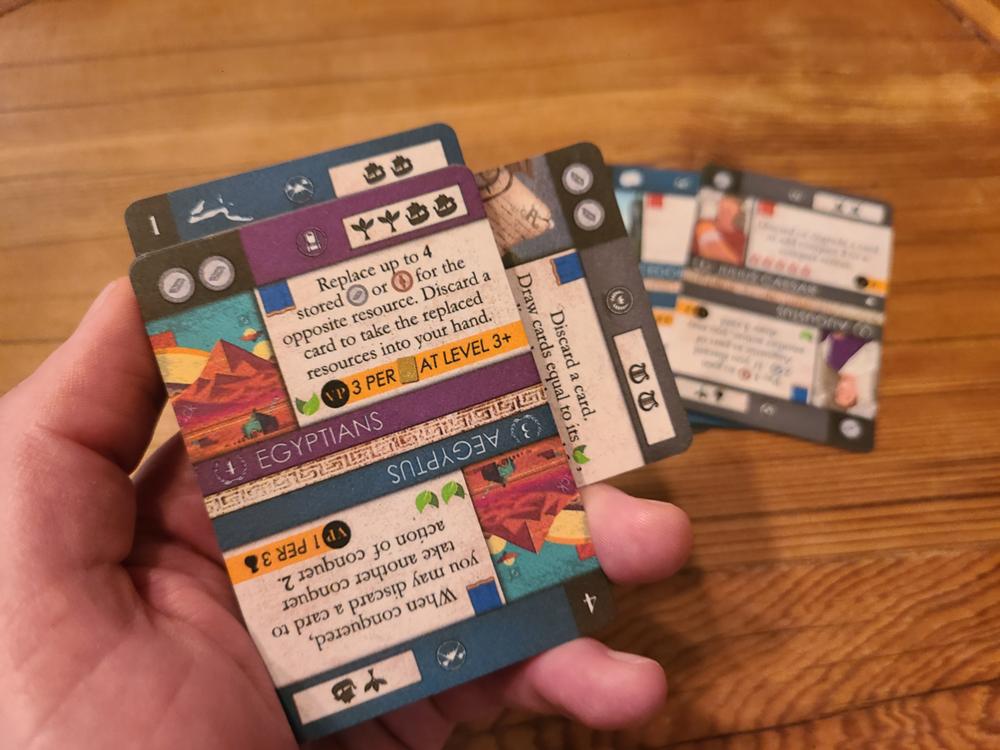
What Are These Rival Civs?
You can choose to play simply in score-chaser mode, or play against one of four bots: the Carthaginians, Greeks, Egyptians, or Celts. You don't need to do anything to run the bots during the game. Instead, they get their own score based on your end game state. The Carthaginians, for example, score well if you don't have enough conquered region wealth or military icons. The Celts punish you for having a large amount of unrest. And the Greeks force you to try to have as many culture icons as possible.
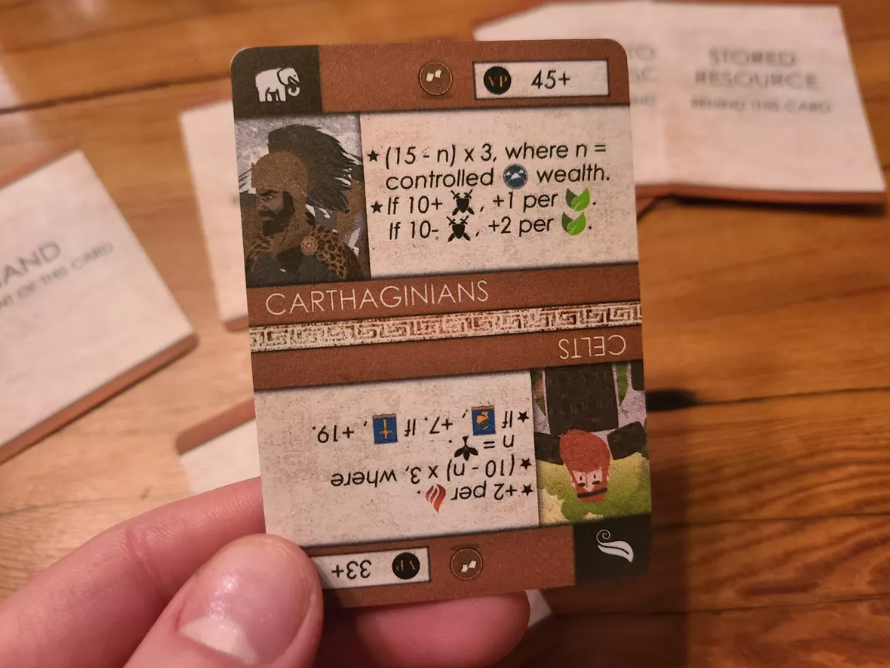
What's the Twist?
Drawing inspiration from Imperium (Classics/Legends/Horizons), Behold: Rome includes a unique ancient/advanced nation status mechanism. Card levels with a red banner can only be played or conquered if your civ is currently in ancient status (either monarchy or republic). Likewise, you can only play or conquer cards with blue banners if your nation is currently advanced (an empire or theocracy). Some card level scoring rules even depend on which nation status you end the game on!
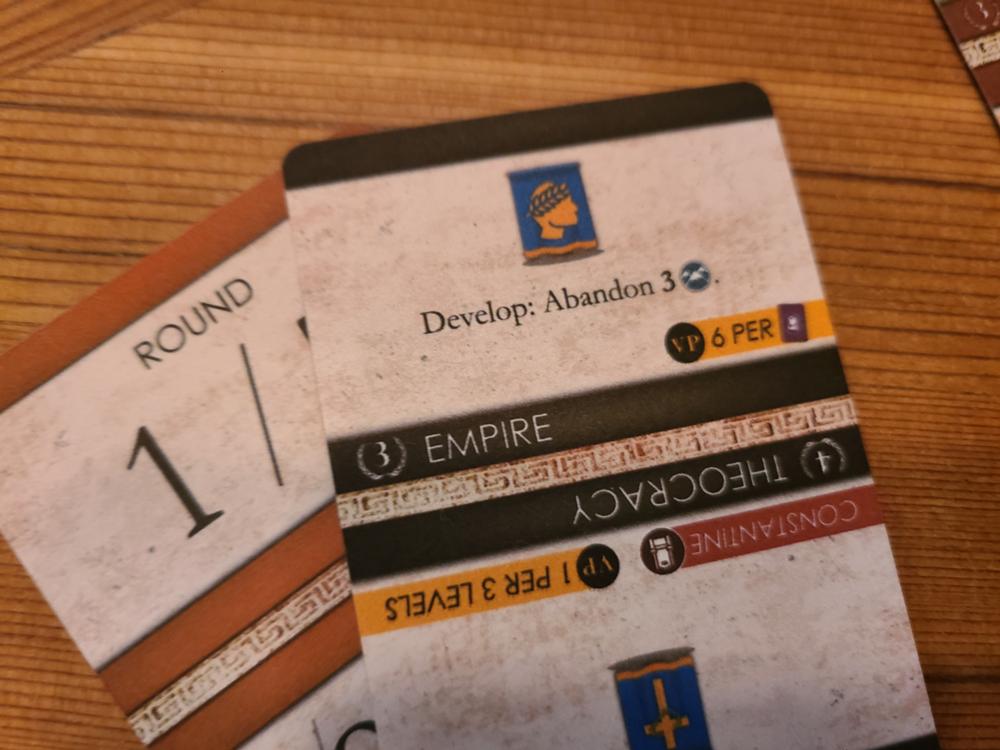
Unrest and Prosperity? There's Room for That?
Many cards, such as Julius Caesar and higher levels of the Roman Legions, include unrest icons. These reduce your score at the end of the game. But! Other cards, such as The Senate and Hadrian's Wall, provide prosperity icons. Every prosperity icon cancels out one unrest icon. You will either need to keep your ambitions in check or make sure you have developed enough prosperity to manage all the unrest. Or, just try for a really high score and let the unrest do its worst!
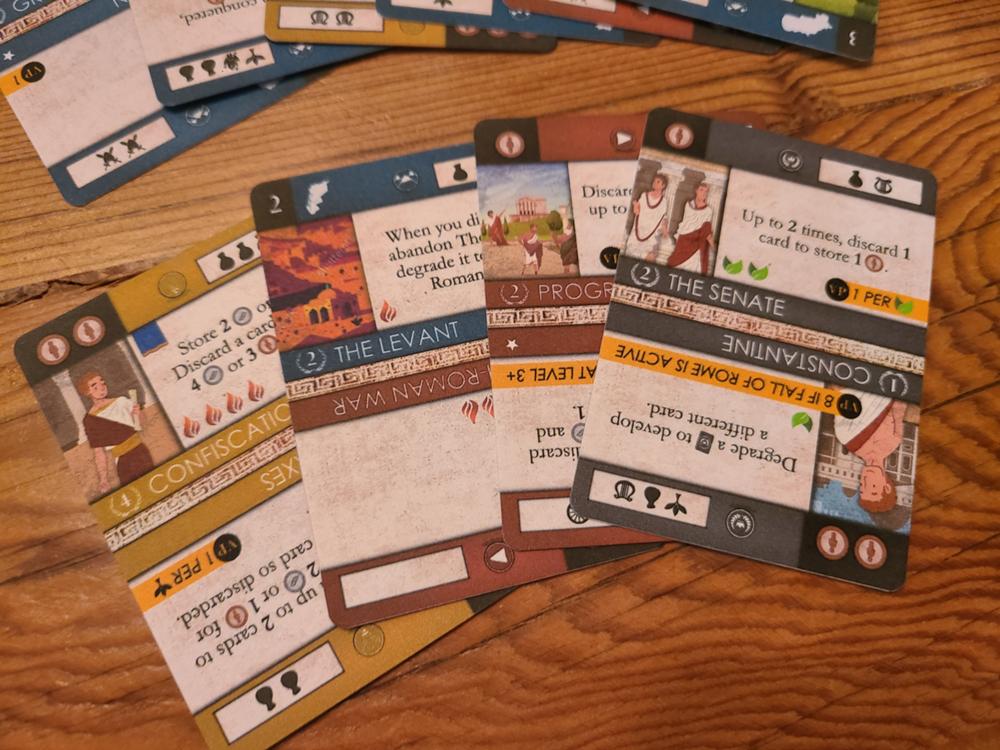
Can the Gameplay Really be That Strategic?
Underestimate this game at your peril! You'll need multiple plays to start getting your head around a good scoring strategy. "Let's see...if I want to face the Egyptians, I probably want to end as an empire. But how do I score well as an empire? Looks like getting tributaries active is a good strategy. But I'm going to need some decent conquer cards to make sure I'm feeding my engine with regions to abandon. I'm also gonna need a good population production engine for those conquer actions. Yikes, and I better not develop those tributaries too soon; they diminish my available regions to conquer. Oof, and all this unrest!"
You May Recognize the Designer From...
I've made a lot of small-box, micro and in-hand titles, including:
Dragons of Etchinstone
Gloomhaven: Buttons & Bugs (co-designed with Nikki Valens)
Rome: Fate of an Empire
Birdscaping
The Hand of Destiny
And micro versions of some of your favorite games from other publishers!
Gloomholdin' (Gloomhaven)
Ark Minima (Ark Nova)
Mage Lite (Mage Knight)
Pax Pamini (Pax Pamir 2e)
Mistsmall (Mistfall)
Pocket Watch (Set a Watch)
Components
| Component | Quantity | Photo |
|---|---|---|
| Poker Tuck Box (36 cards) | 1 |  |
| Small Booklet | 2 |  |
| Poker Deck | 1 deck of 26 cards |  |
Vitals
| Average Rating | 4 reviews |
|---|---|
| Publish Date | December 02, 2024 |
| Edition | First |
| Department | Games |
| Tags | no-table-needed in-hand card game Board game Civilization Rome |
| More Info | Behold: Rome (Deluxe Edition) web site |
Why buy this?
- Challenging, strategic gameplay
- No table needed!
- Off-the-charts replayability
Related Games

Joe Klipfel
Notes
- This game contains a premium upgrade where the printed components will be embossed with a linen texture.
See It In Action
Ratings and Reviews
So much game in such a little box! Great to take anywhere and have a deep, strategic game in my pocket! Thank you for creating this!
An incredible feat to have condensed so much into so small a box. If you enjoy games like Imperium (Classics/Legends/Horizons), I heartily recommend this!
Great game with intersting decisions throughout, not to mention can be played anywhere. Probably not a great value $24, but fantastic value at $11.
This is one of the best "Anywhere, anytime" games you can find. Strategic play that doesn't feel forced, and plenty of replayability with multiple decision points and endgame scenerios. Excellent valu...











